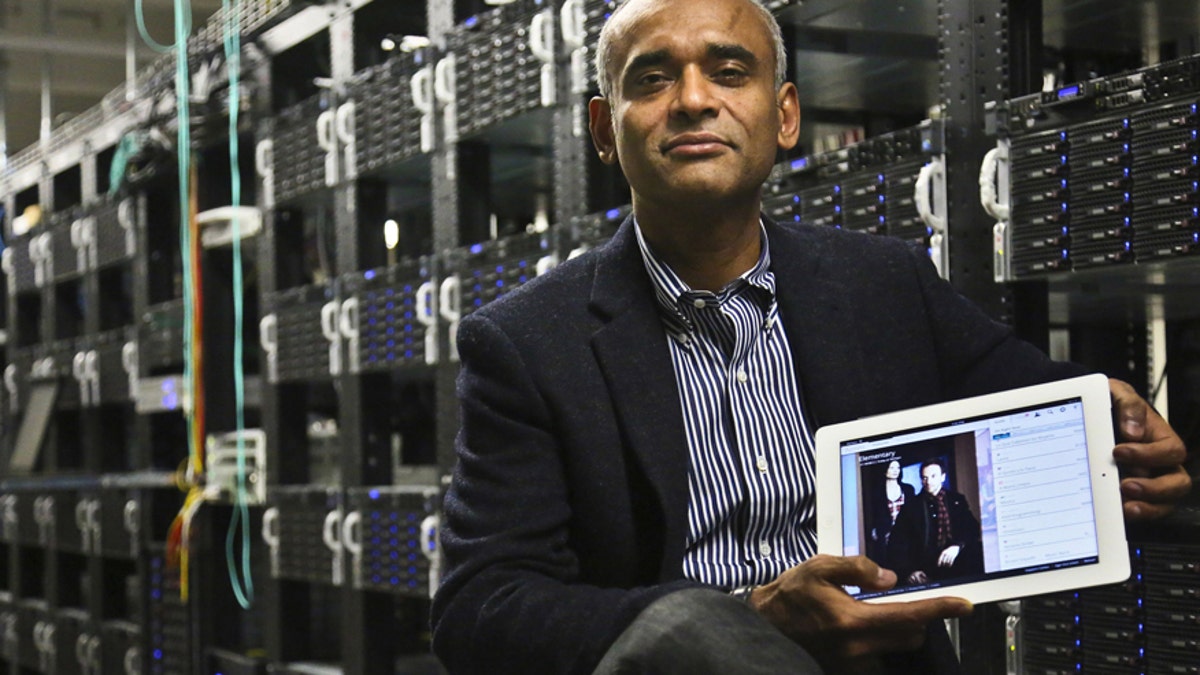
This Dec. 20, 2012 file photo shows Chet Kanojia, founder and CEO of Aereo, Inc., holding a tablet displaying his company's technology. (AP)
In another chapter of the battle between national broadcast networks and streaming video startup Aereo, legal representatives of Aereo filed papers in court Wednesday that state the company can resume operations assuming proper licensing as a cable operator is obtained. Basically, Aereo’s position states that the Supreme Court classified the company as a “traditional cable system,” therefore the company is entitled to operate as such and pay the licensing fees associated with that business model. Of course, those costs could potentially be passed along to the consumer in the monthly subscription fee if this course of action is approved by the courts.
Aereo continues to support this argument by stating that the Supreme Court overruled a previous ruling by a lower court in which a Seattle-based streaming startup called Ivi wasn’t allowed to be classified as a cable system under the rules of the Copyright Act. Aereo also claims that the Supreme Court did not prohibit the use of the cloud-based DVR service that allowed Aereo subscribers the ability to record live programming for consumption at a later time.
Of course, Aereo is also arguing that a stay remain in place rather than the case being dismissed, thus allowing the company to continue operations. Alternatively, the broadcasters want the stay lifted in order to pursue litigation related to collecting monetary damages from the company. Legal representatives of the broadcasters responded to Aereo’s motion today stating “Whatever Aereo may say about its rationale for raising it now, it is astonishing for Aereo to contend the Supreme Court’s decision automatically transformed Aereo into a ‘cable system’ under the law.”
Even if the U.S. District Court in New York considers Aereo’s new claim to be valid, the company will still have to work with the FCC and the U.S. Copyright Office to be classified as a cable operator. Aereo claims that the broadcasters will have to negotiate “in good faith” regarding fees related to the transmission of network content.
